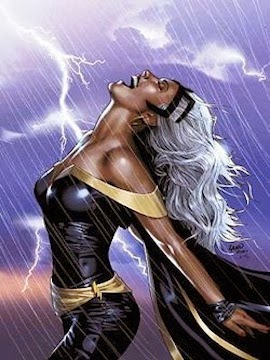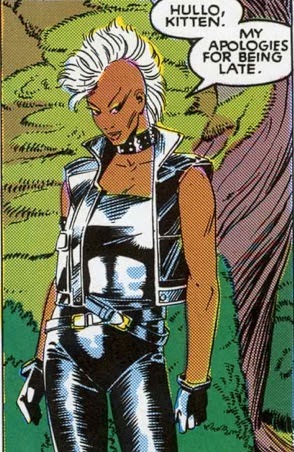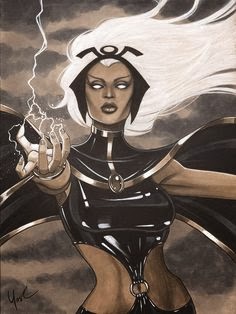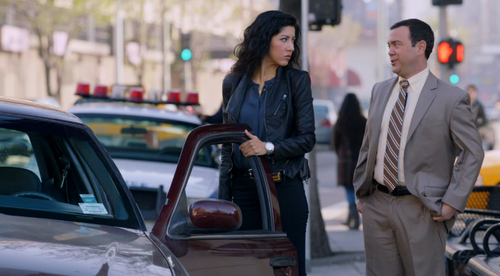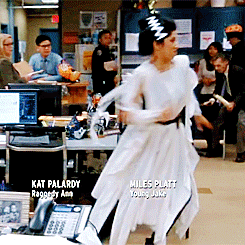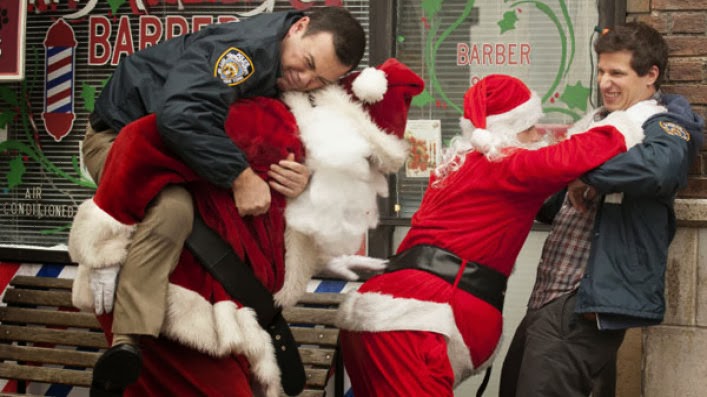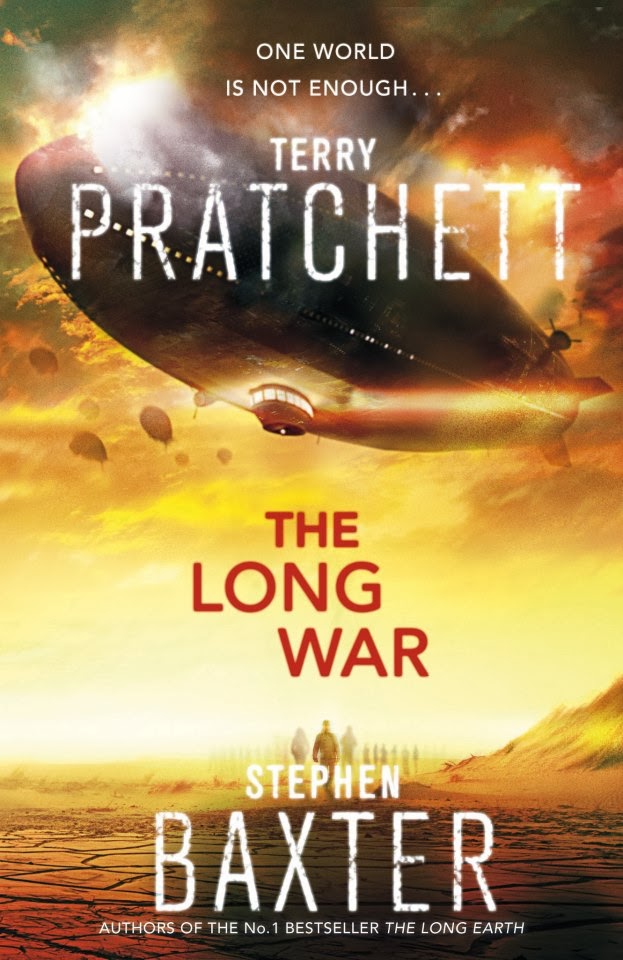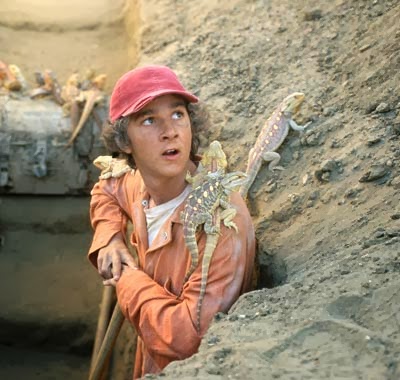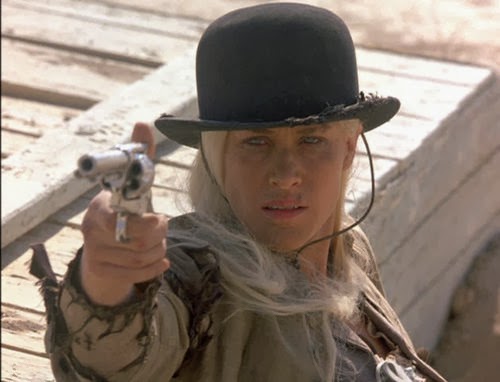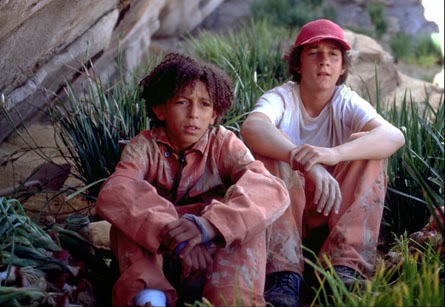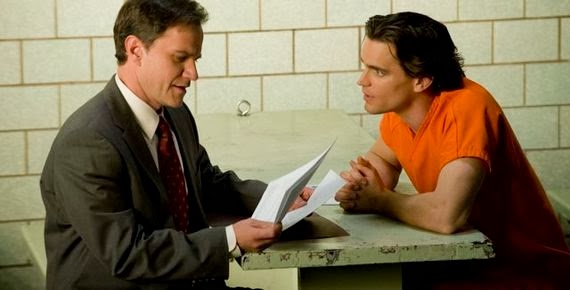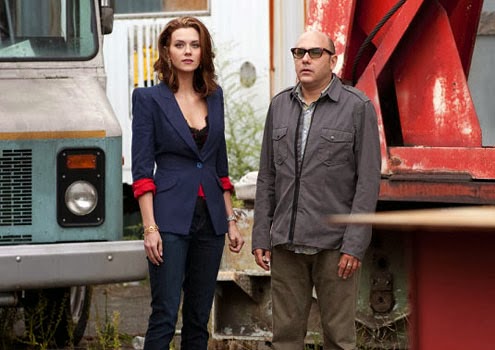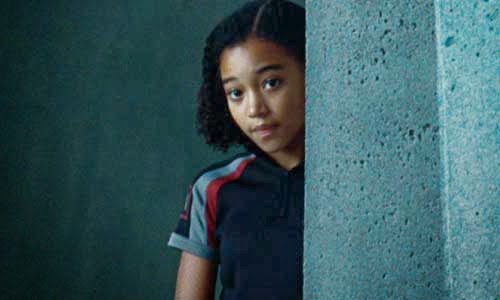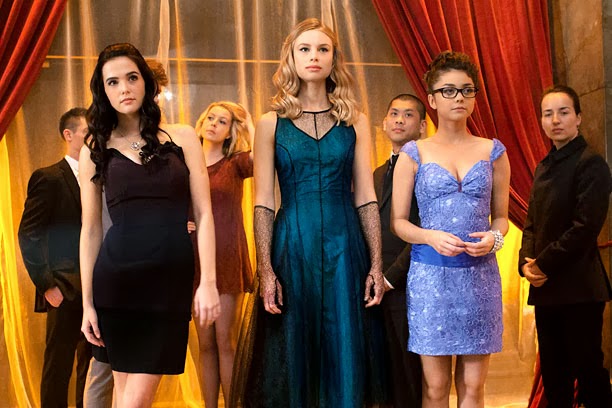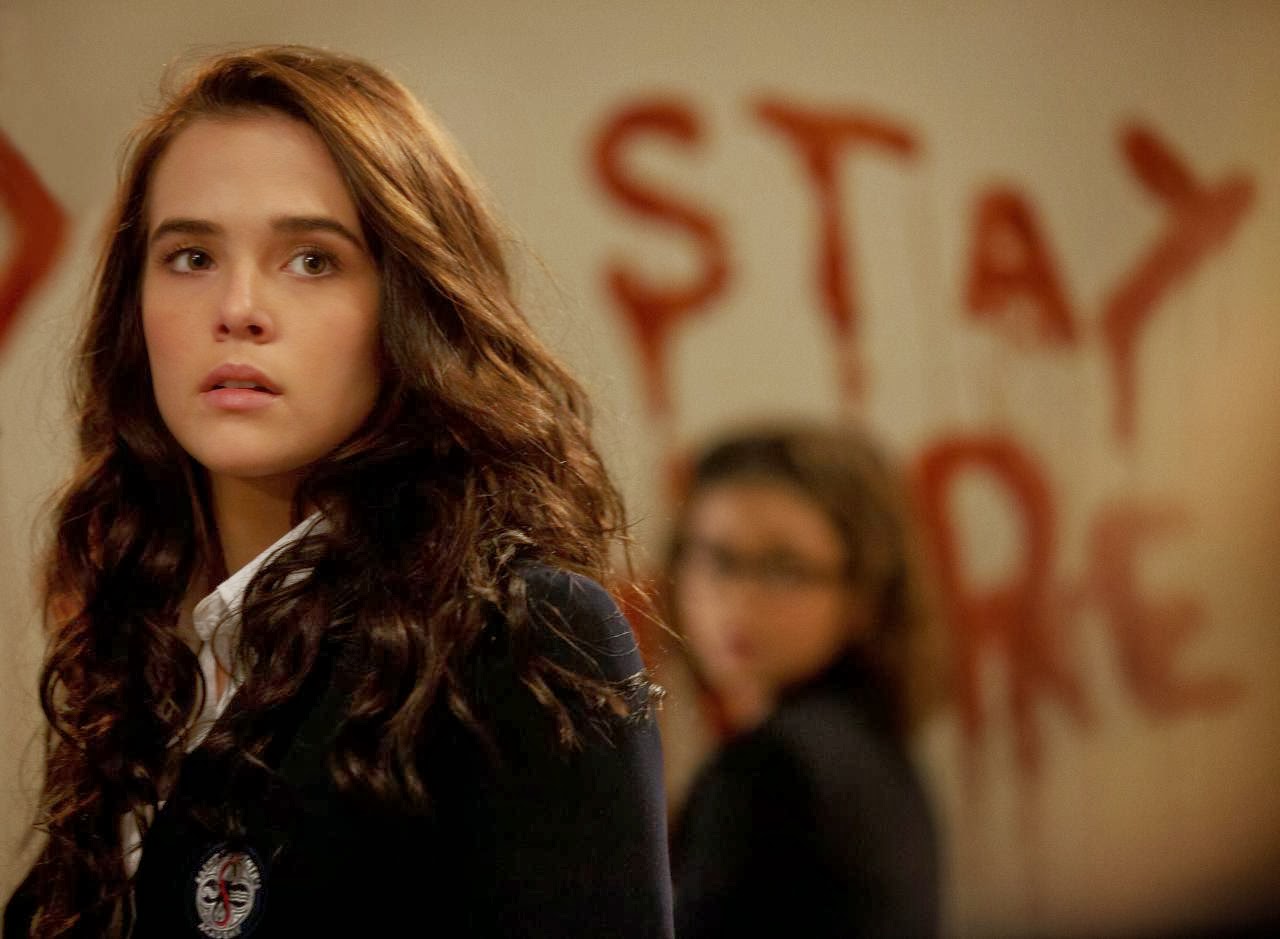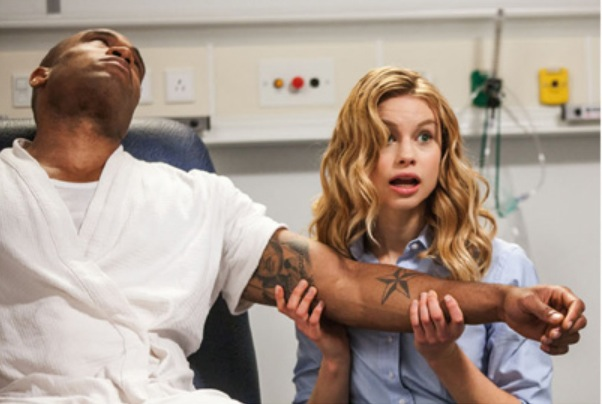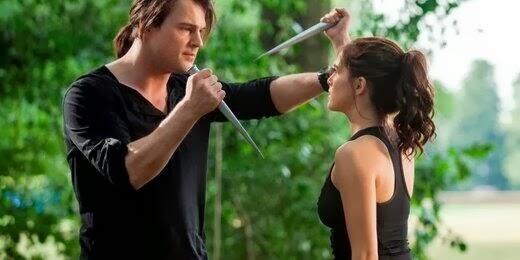By popular demand, it seems that today, as the last day of Black History Month, and as the last SFC Friday in our series, we're talking about Storm, or Ororo Munroe from the X-Men. Rock on. Last week we talked about Rue (Hunger Games), and before that we discussed Jenny Mills (Sleepy Hollow), and Jessica Pearson (Suits). I feel like we've covered a pretty good swath, insofar as one can cover a swath in four measly articles.
Anyway. Today is all about Storm. First off, we have to talk about how awesome she is, because she is hella awesome. But then we have to talk about something else, something (arguably) equally important: How did a character as ragingly amazing as Storm end up as one of the crappiest superhero adaptations in recent memory? Because let's be real, as good an actress as Halle Berry is in Oscar bait movies, well, that's how bad she is at playing superheroes. I've not even been able to get through Catwoman, and her Storm really isn't much better.
But first, let's talk about what we love about Storm. And, let's be real, there's a lot to love.
First off, there's her backstory. Storm has the kind of blissfully crazy and jam-packed backstory that all the best superheroes have. But hers is, well, kind of better than all of theirs. I don't think I can put it better than Nerdy But Flirty did, but I'll try: Ororo Munroe was born in Harlem, to the daughter of a long line of Kenyan priestesses and an African-American photojournalist. Shortly after her birth, her parents moved to Cairo, where they tragically died. Ororo (not Storm yet, that came later), grew up as a pickpocket in the streets of Cairo, before fleeing out in the desert as her nascent powers began to emerge. After nearly dying in the Sahara (but surviving because, you know, weather powers), she found her way to her mother's ancestral village in Kenya, where she learned to harness her powers and came to be worshipped as a goddess.
And then eventually she found her way to the United States and wound up with the X-Men. One fun version of how that happened has her catching Professor Xavier's notice as a chid in Cairo when she stole his wallet. Fun times. At any rate, Ororo, now Storm, joined up with the X-Men and quickly rose to prominence in the team. She became the default team leader when Cyclops was unavailable (dead, on leave, or being beset by relational problems again), and developed a strong maternal bond with some of the younger girls at the school. Kitty Pryde particularly.
Oh, and there's this bit of backstory they added in later where she saved T'Challa, or Black Panther, from racist thugs when they were kids, and then when they meet later in life, they fall in love, and he asks her to marry him and be queen of his country (Wakanda), and she says yes, even though she's turned down kings before. It's all very romantic, until, like always happens in comic books, it turns sour and they have to take a break, and she rebounds by leading a group of all female superheroes under the comic title X-Men, because heck yes Storm is that cool.
Did I mention that Storm had a mohawk at one point? It's not super relevant, it just makes me very, very happy.
So, obviously from my description, Storm is a cool character, with a backstory that sure as hell deserves a movie by now. Seriously. She's by far the most interesting character on the X-Men, and one of the most compelling figures in all of Marvel canon. Get on that, Fox. Stop making movies about Wolverine, and make a couple about our lady of bad weather, Storm. Please.
But the other thing that should be apparent from that description is that none of that was accidental. Storm is a cool character because a lot of writers throughout the years took the time and effort to make her one. She was created to be a strong character, she was intended to be a team leader, and she was. Storm isn't just a nice character who happened to get popular and then the writers took credit for that. No. She was always intended to be a lead. And that? That is awesome.
Because you have to remember that Storm is not a new character. She first came out in the 70s, and she's been a lead in X-Men literally since she showed up. She's the most recognizable black superheroes, and one of the first black female superheroes full stop. I cannot stress enough how important she is as a character, and I cannot stress enough how happy I am that so many writers put so much effort into making sure she stayed important.
Now there's the bad news, though. Because as much as Storm is kick-ass and amazing and occasionally practices nudism because she thinks we're all prudes and is the emotional core of the X-Men and may have dated Wolverine that one time and kind of sort of ruled an African country for a bit and refused to choose between being a queen and being a superhero, she's really one of the worst characters in the X-Men movies.
How the hell did that happen?
Like I said above, I think some of that has to do with bad casting. Halle Berry is a great actress, but she is not a natural at this superhero thing. She's no Chris Evans (Captain America and The Human Torch) or Ben Affleck (Daredevil and Batman). Hmm. Maybe Ben Affleck was a bad example. Anyway. Halle Berry really never seems comfortable as Storm. She never seems like she's having fun or that she's getting into it or even that she's there for anything more than the paycheck. If anything, she looks slightly pained all the time in all of the movies. And that's just no fun.
But that's not the only problem. I would say that the bigger issue we have with Storm is that the writers, the Hollywood script writers, that is, had absolutely no idea what to do with a strong, interesting black woman with no romantic ties to anyone in the story. Like, they just had no clue. They couldn't not put Storm in, because she's one of the best known X-Men, and one of the most popular female superheroes at all, but they also didn't know what to do with her. So they gave her a few quippy (weird) lines, and then mostly stuck her in the background while the white men sorted out the plot.
And then they did that in the second movie. And the third one. Why? Because they had no freaking clue what to do with her.
I get it. I really do. Change is scary and hard. If you write one female character of color as a person who doesn't need a man or a white person in order to relate to the plot, then you might have to write all of them that way! This leads to madness and chaos!
By which I mean that I do not get it, and the failure of the X-Men movies to provide us with an even vaguely recognizable Storm fills me with anger.
However. I have a solution to this. A good solution. You want to hear it?
Give Storm her own freaking movie. Now. Not in five years, now. I promise you that we'll go see it. And you know what? Don't cast Halle Berry in it. I know that black actresses scare you, Hollywood, but hold it together and bear with me for a second. You know who would make an awesome Storm? Bianca Lawson. Aka, the chick who played Kendra on Buffy and Ms. Morrell on Teen Wolf, and fourteen kajillion other interesting, snarky, clever women in between. Bianca Lawson should play Storm. And you should write her a movie that works. A movie with her full backstory, a movie about a woman who refuses to choose between being queen and being a superhero, a movie about a woman who has almost limitless power over the weather, and who decides that she'd like to teach high school for a little while.
Give us a movie about Storm, the real Storm. The woman who loves Kitty Pryde like her own daughter, and who is such a badass she's beating up racist thugs as a pre-teen. Give us Storm who doesn't really remember American social mores some of the time, and really doesn't care. Give us Storm who was worshipped as a goddess and didn't let it go to her head, but definitely doesn't mind a little adulation and fawning here and there. Give us Storm. Give us her in all her awesome glory. And you know what we'll give you in return?
Money. Lots of it. So get on that, Hollywood.
Anyway. Today is all about Storm. First off, we have to talk about how awesome she is, because she is hella awesome. But then we have to talk about something else, something (arguably) equally important: How did a character as ragingly amazing as Storm end up as one of the crappiest superhero adaptations in recent memory? Because let's be real, as good an actress as Halle Berry is in Oscar bait movies, well, that's how bad she is at playing superheroes. I've not even been able to get through Catwoman, and her Storm really isn't much better.
But first, let's talk about what we love about Storm. And, let's be real, there's a lot to love.
First off, there's her backstory. Storm has the kind of blissfully crazy and jam-packed backstory that all the best superheroes have. But hers is, well, kind of better than all of theirs. I don't think I can put it better than Nerdy But Flirty did, but I'll try: Ororo Munroe was born in Harlem, to the daughter of a long line of Kenyan priestesses and an African-American photojournalist. Shortly after her birth, her parents moved to Cairo, where they tragically died. Ororo (not Storm yet, that came later), grew up as a pickpocket in the streets of Cairo, before fleeing out in the desert as her nascent powers began to emerge. After nearly dying in the Sahara (but surviving because, you know, weather powers), she found her way to her mother's ancestral village in Kenya, where she learned to harness her powers and came to be worshipped as a goddess.
And then eventually she found her way to the United States and wound up with the X-Men. One fun version of how that happened has her catching Professor Xavier's notice as a chid in Cairo when she stole his wallet. Fun times. At any rate, Ororo, now Storm, joined up with the X-Men and quickly rose to prominence in the team. She became the default team leader when Cyclops was unavailable (dead, on leave, or being beset by relational problems again), and developed a strong maternal bond with some of the younger girls at the school. Kitty Pryde particularly.
Oh, and there's this bit of backstory they added in later where she saved T'Challa, or Black Panther, from racist thugs when they were kids, and then when they meet later in life, they fall in love, and he asks her to marry him and be queen of his country (Wakanda), and she says yes, even though she's turned down kings before. It's all very romantic, until, like always happens in comic books, it turns sour and they have to take a break, and she rebounds by leading a group of all female superheroes under the comic title X-Men, because heck yes Storm is that cool.
Did I mention that Storm had a mohawk at one point? It's not super relevant, it just makes me very, very happy.
So, obviously from my description, Storm is a cool character, with a backstory that sure as hell deserves a movie by now. Seriously. She's by far the most interesting character on the X-Men, and one of the most compelling figures in all of Marvel canon. Get on that, Fox. Stop making movies about Wolverine, and make a couple about our lady of bad weather, Storm. Please.
But the other thing that should be apparent from that description is that none of that was accidental. Storm is a cool character because a lot of writers throughout the years took the time and effort to make her one. She was created to be a strong character, she was intended to be a team leader, and she was. Storm isn't just a nice character who happened to get popular and then the writers took credit for that. No. She was always intended to be a lead. And that? That is awesome.
Because you have to remember that Storm is not a new character. She first came out in the 70s, and she's been a lead in X-Men literally since she showed up. She's the most recognizable black superheroes, and one of the first black female superheroes full stop. I cannot stress enough how important she is as a character, and I cannot stress enough how happy I am that so many writers put so much effort into making sure she stayed important.
Now there's the bad news, though. Because as much as Storm is kick-ass and amazing and occasionally practices nudism because she thinks we're all prudes and is the emotional core of the X-Men and may have dated Wolverine that one time and kind of sort of ruled an African country for a bit and refused to choose between being a queen and being a superhero, she's really one of the worst characters in the X-Men movies.
How the hell did that happen?
Like I said above, I think some of that has to do with bad casting. Halle Berry is a great actress, but she is not a natural at this superhero thing. She's no Chris Evans (Captain America and The Human Torch) or Ben Affleck (Daredevil and Batman). Hmm. Maybe Ben Affleck was a bad example. Anyway. Halle Berry really never seems comfortable as Storm. She never seems like she's having fun or that she's getting into it or even that she's there for anything more than the paycheck. If anything, she looks slightly pained all the time in all of the movies. And that's just no fun.
But that's not the only problem. I would say that the bigger issue we have with Storm is that the writers, the Hollywood script writers, that is, had absolutely no idea what to do with a strong, interesting black woman with no romantic ties to anyone in the story. Like, they just had no clue. They couldn't not put Storm in, because she's one of the best known X-Men, and one of the most popular female superheroes at all, but they also didn't know what to do with her. So they gave her a few quippy (weird) lines, and then mostly stuck her in the background while the white men sorted out the plot.
And then they did that in the second movie. And the third one. Why? Because they had no freaking clue what to do with her.
I get it. I really do. Change is scary and hard. If you write one female character of color as a person who doesn't need a man or a white person in order to relate to the plot, then you might have to write all of them that way! This leads to madness and chaos!
By which I mean that I do not get it, and the failure of the X-Men movies to provide us with an even vaguely recognizable Storm fills me with anger.
However. I have a solution to this. A good solution. You want to hear it?
Give Storm her own freaking movie. Now. Not in five years, now. I promise you that we'll go see it. And you know what? Don't cast Halle Berry in it. I know that black actresses scare you, Hollywood, but hold it together and bear with me for a second. You know who would make an awesome Storm? Bianca Lawson. Aka, the chick who played Kendra on Buffy and Ms. Morrell on Teen Wolf, and fourteen kajillion other interesting, snarky, clever women in between. Bianca Lawson should play Storm. And you should write her a movie that works. A movie with her full backstory, a movie about a woman who refuses to choose between being queen and being a superhero, a movie about a woman who has almost limitless power over the weather, and who decides that she'd like to teach high school for a little while.
Give us a movie about Storm, the real Storm. The woman who loves Kitty Pryde like her own daughter, and who is such a badass she's beating up racist thugs as a pre-teen. Give us Storm who doesn't really remember American social mores some of the time, and really doesn't care. Give us Storm who was worshipped as a goddess and didn't let it go to her head, but definitely doesn't mind a little adulation and fawning here and there. Give us Storm. Give us her in all her awesome glory. And you know what we'll give you in return?
Money. Lots of it. So get on that, Hollywood.
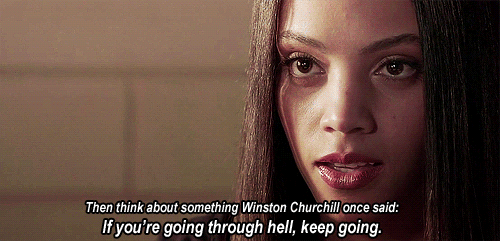 |
| Bianca Lawson. Just saying. |

